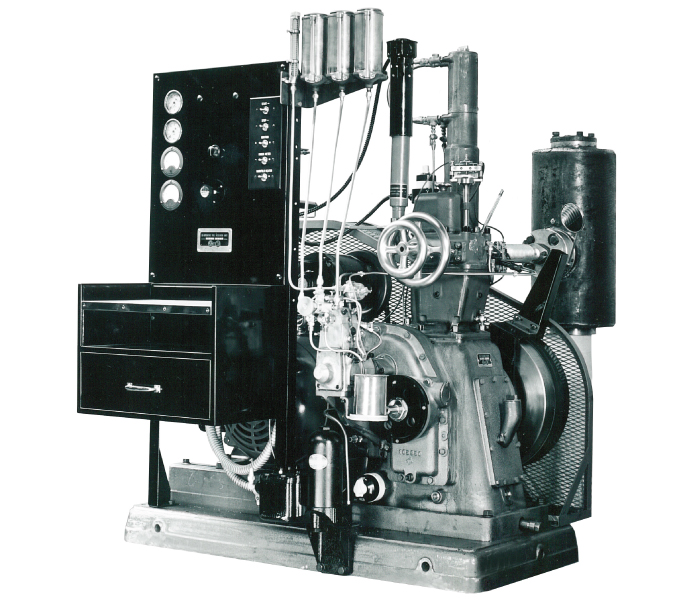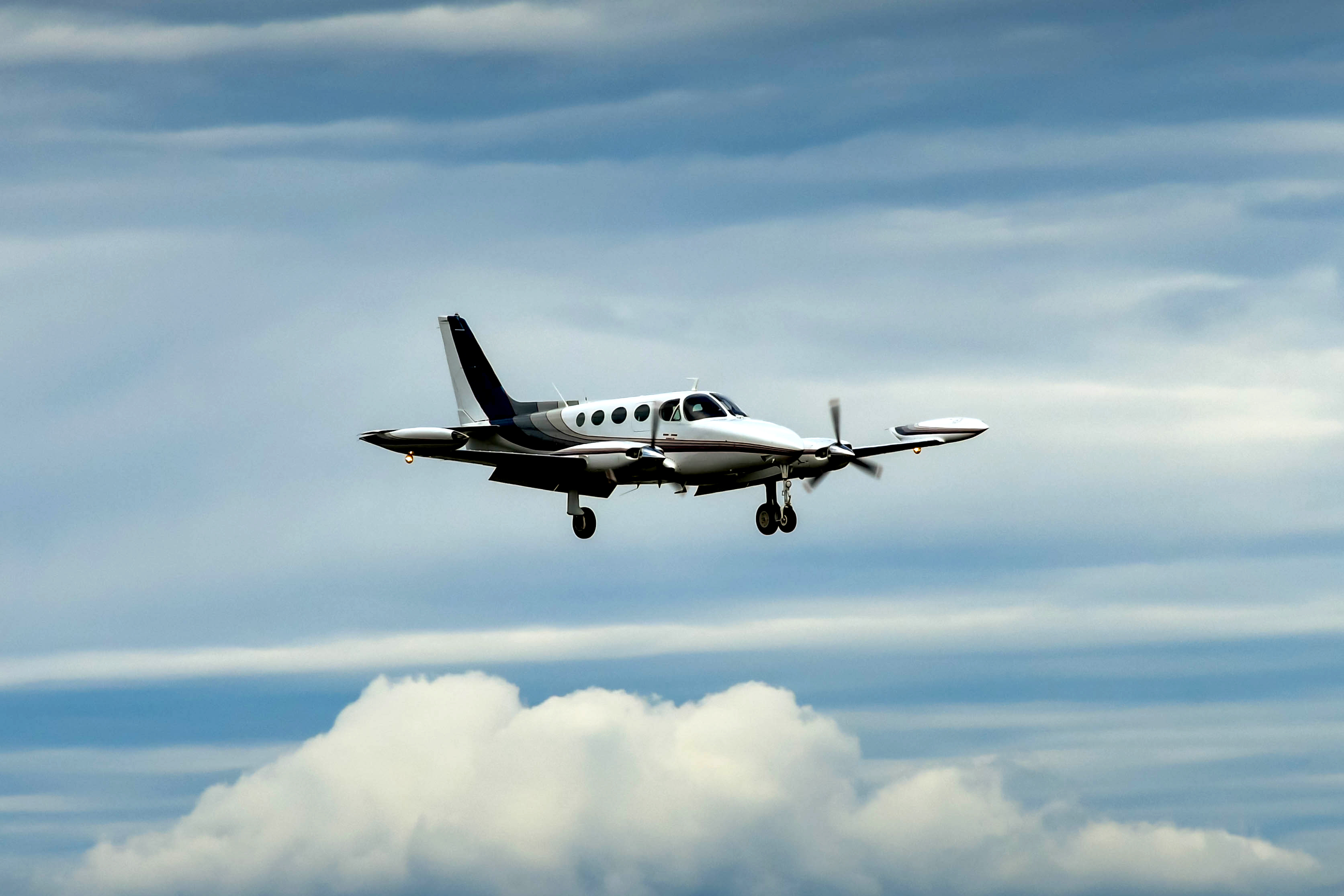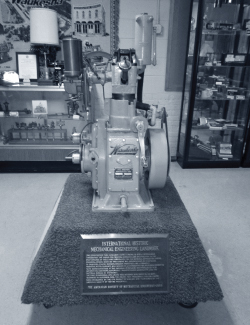History
History Timeline
The Team Behind the EngineForming the Cooperative Fuel Research
The First Engine
In 1928, the CFR Committee accepted the Waukesha Motor Company desgin for a standardized, single-cylinder test engine to test gasoline knock.
In December, the CFR Committee accepted the basic Waukesha Motor Company design, and detail drawings proceeded.
The first engine was designed, built, tested, and delivered to Detroit in under 45 days. It was put on display on January 14, 1929 at the Society of Automotive Engineer's (SAE) Annual meeting.
DieselCetane Rating Unit
In 1931, after much success with the Octane Rating Engine, the variable compression ratio model was modified to study the ignition quality of diesel fuel.
The CFR Cetane Rating Engine was first commercially released in 1938.

Propelling ForwardThe Supercharge Method
During World War II the CFR F4 Supercharge Method was built to assist with military fuel quality control.

Historical & InternationalLandmarks

ASME Recognition
In 1980, the original CFR engine, also known as the Waukesha CFR engine, was recognized by the American Society of Mechanical Engineers (ASME) as the forty-ninth in their series of historical mechanical engineering landmarks.The First International Landmark
Pioneered clean-burning, ultra-high cetane renewable diesel fuelsIgnition Quality Tester (IQT®)
Advanced Engine Technology Ltd. (AET) / Ignition Quality Tester (IQT) pioneered the first Constant Volume Combustion Chamber (CVCC) market offering.
Only CVCC Instrument that is a Referee Certification Method
The testing process involves the injection of diesel fuel into a heated CVCC. The resulting output is the generation of a Derived Cetane Number (DCN) that is used to certify to the
cetane number specification of the standard.
The IQT is the only CVCC instrument that is a referee certification method for a fuel standard (the EN 15940 paraffinic
diesel specification).